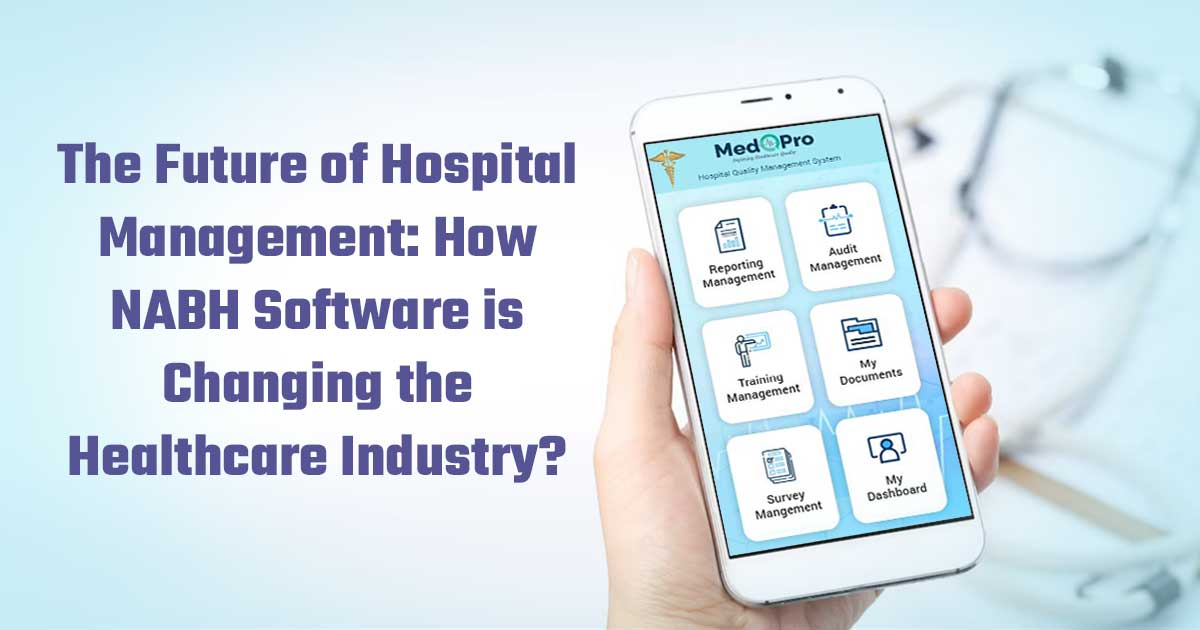The healthcare business is always developing, and hospital administration is no exception. With the introduction of new technology and the rising demand for high-quality healthcare services, hospital administration is more complicated than ever. In recent years, the National Accreditation Board for Hospitals & Healthcare Providers (NABH) has developed NABH software solutions to enhance hospital administration and patient care.
About NABH Software
NABH Compliant Hospital Software is all-inclusive hospital management software that enables hospitals to manage all operations digitally. The program allows hospitals to simplify operations, decrease paperwork, and improve patient care. NABH software encompasses all facets of hospital administration, including patient registration, appointment scheduling, invoicing, inventory management, and pharmacy management.
NABH software is transforming the healthcare business by equipping hospitals with an effective and efficient way of managing their operations. From patient registration through discharge, NABH software automates several hospital administration activities, allowing healthcare staff to concentrate on providing superior patient care. Moreover, this software also enables hospitals to comply with NABH guidelines, which guarantee that healthcare practitioners offer patients safe, high-quality treatment.
Impact of NABH Software on Hospital Management
NABH software is transforming the healthcare business by enhancing hospital administration. These are a few examples of how NABH software is transforming the healthcare industry:
- Enhanced Patient Care: NABH software enables hospitals to provide better patient care by streamlining their operations. The software allows hospitals to manage patient information more efficiently, enabling healthcare providers to make informed decisions about patient care.
- Improved Efficiency: NABH software improves the efficiency of hospital management by reducing paperwork and automating various tasks. The software helps hospitals to manage their operations more efficiently, leading to cost savings and better patient outcomes.
- Better Patient Safety: NABH compliance is now mandatory. Further, NABH software helps hospitals maintain high patient safety standards by ensuring that all hospital operations comply with the regulations set by the NABH. The software helps hospitals maintain accurate records and ensure patients receive the right treatment at the right time.
- Cost Savings: NABH software enables hospitals to save costs by reducing paperwork, eliminating errors, and streamlining their operations. The software helps hospitals to manage their resources more efficiently, leading to cost savings and improved profitability.
- Improved Data Security: NABH software helps hospitals maintain patient data’s confidentiality and integrity by ensuring that all data is stored securely. The software helps hospitals to comply with data privacy regulations and protects patient data from unauthorized access.
The Future of Hospital Management
The future of hospital management is digital, and NABH software plays a critical role in this transformation. The healthcare industry rapidly adopts digital technologies to enhance patient care and improve efficiency. In the future, hospital management will be more data-driven, with hospitals using advanced analytics tools to make informed decisions about patient care. Hospitals will also be more connected, with healthcare providers collaborating more closely to provide better patient outcomes.
Final Thoughts
NABH software is changing the healthcare industry by transforming hospital management. The software is improving patient care, enhancing efficiency, and reducing costs. The future of hospital management is digital, and NABH software plays a critical role in this transformation. Hospitals that adopt NABH software will be better positioned to provide high-quality care and improve patient outcomes. MedQPro offers JCI and NABH Compliant Hospital Software solutions. Contact us to know how we can assist your clinical practice.

